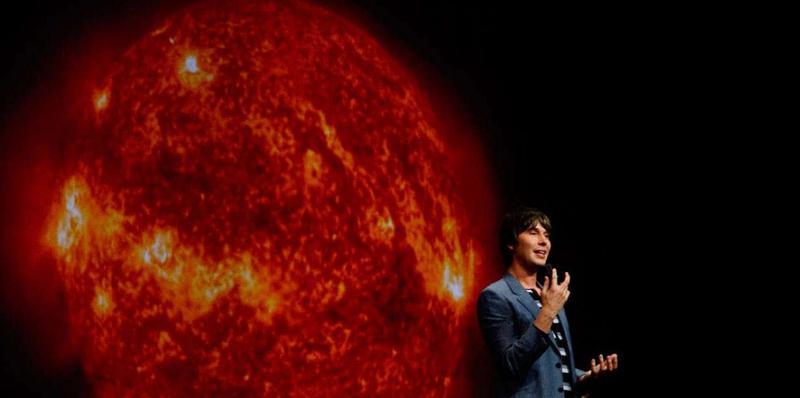Brian Cox Explains Why We Haven't Seen Aliens Yet — And It Isn't PrettyMar 29, 2018

Physicist Brian Cox has weighed in one of astronomy’s most curious questions: Given the high probability of extraterrestrial life existing in the endlessly massive universe, why haven’t we seen any clear evidence of it?
Will we ever discover alien civilization? There have been enough films about alien take overs and out of this world life forms from Alien to District 9, but now according to British physicist Brian Cox it is unlikely to happen.
Professor Cox, best known for presenting Stargazing Live and Wonders of the Universe, has admitted that he believes our search is unlikely to see results because intelligent life destroys itself not long after it evolves.
It is one of astronomy’s great mysteries: Why, given the estimated 200bn–400bn stars and at least 100bn planets in our galaxy, are there no signs of alien intelligence?
According to The Sunday Times, Professor Cox’s suggestion is that the rate of advances in science and engineering in any type of alien civilisation may outstrip the development of political institutions able to manage them, leading to a self-destruction model.
So technology that allows the generation of power but produces greenhouse gases, or nuclear weapons, may destroy civilizations within a few thousand years of being developed, which could threaten ours too.
The problem was first posed by physicist Enrico Fermi in 1950 who claimed any life form with rocket technology could colonise the galaxy in a few million years, so why wasn’t there any evidence already?
Professor Cox said: ‘One solution to the Fermi paradox is that it is not possible to run a world that has the power to destroy itself and that needs global collaborative solutions to prevent that.
‘It may be that the growth of science and engineering inevitably outstrips the development of political expertise, leading to disaster.’
Professor Cox has just published a book written with his fellow Manchester University physicist Jeff Forshaw - Universal: A Guide to the Cosmos.
It traces how science has explained the development of the universe back to the Big Bang around 14 billion years ago.
They suggest that the Big Bang was just one of a vast number of such events and there are other universes, in each of which the laws of physics operate in different ways.
Professor Forshaw commented: ‘These seem outlandish ideas but they are based on solid evidence and reasoning.
‘The point of the book is to show how you can use simple but strong evidence and ideas to reach very powerful conclusions.’
The pair’s most controversial idea suggested is that politicians should start thinking more like scientists and base their views on evidence and ideology instead of trying to always offer the public certainty.
Professors Cox said: ‘What does a scientist want to be? Do we want to be right? Or do we care about understanding nature? If it is the latter, we should be delighted to be proven wrong.”
Professor Forshaw added: ‘In the same way, politicians should be delighted if their policies work, but just as delighted if someone comes up with something better.’
By JESSICA DUNCAN FOR MAIL ONLINE
Be the first to post a message!